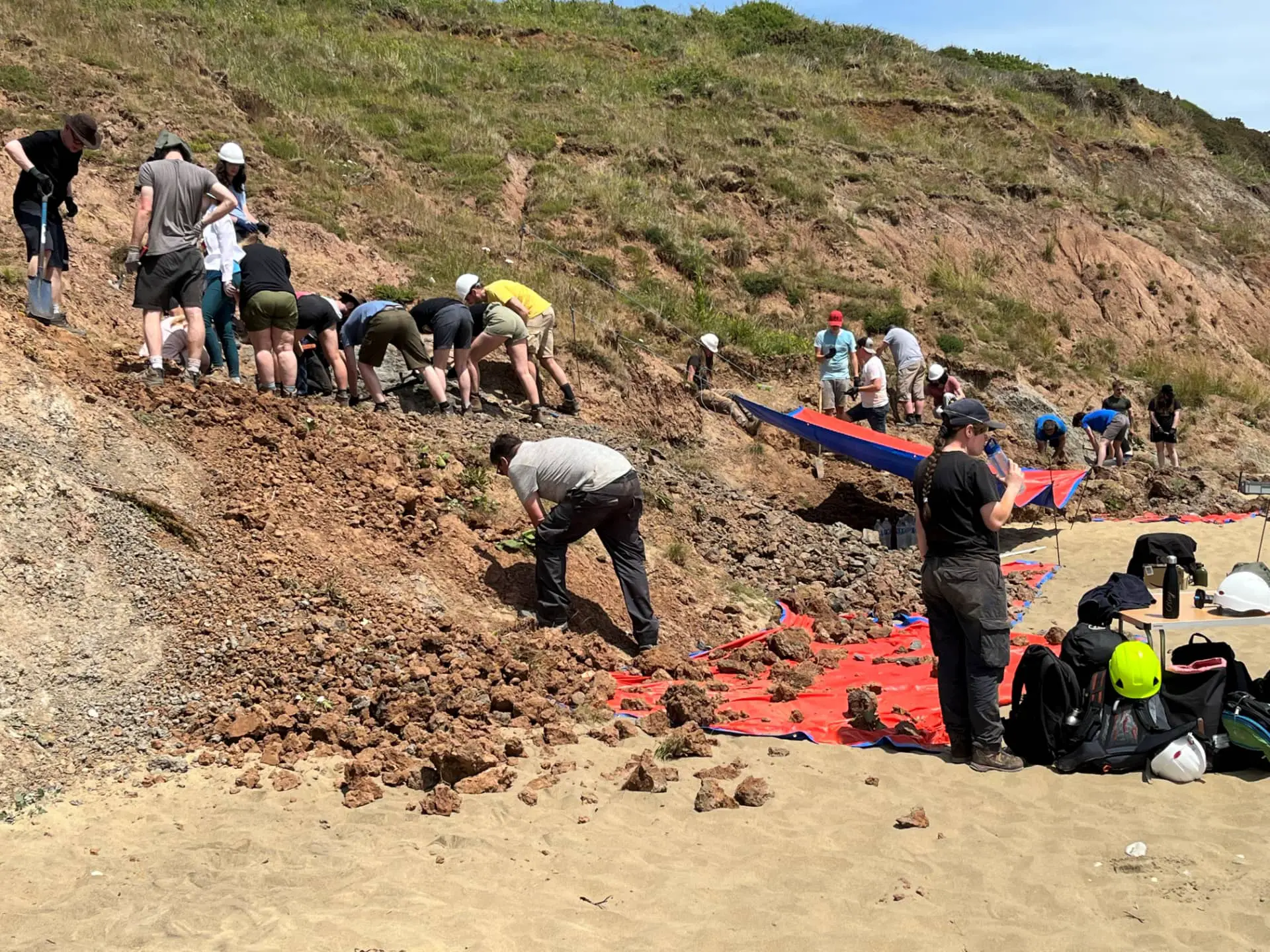Dinosaur Isle is leading the way with a dedicated dinosaur excavation, to provide specialist training for 55 university students from across the county.
The summer dig is taking place in the rich, 125-million-year-old fossil beds at Yaverland.
Taking place this week, visitors will be able to watch the dig and see the painstaking work involved.
Peaker: Field trip and excavation
Alex Peaker, collections officer of geology at Dinosaur Isle, said,
“The first couple of days of each dig will include leading a field trip and exposing the site; the latter three days of the week is when we are hoping to find some impressive dinosaur remains.
“It’s great that Dinosaur Isle can pass on its expertise and knowledge, that will help the students gain valuable excavation skills, needed for their future vocation.”
Bacon: Chance to showcase its famous dinosaur heritage
Cllr Jonathan Bacon, Cabinet member responsible for archaeology and heritage, said,
“The summer dig provides a unique educational platform for the Island to showcase its famous dinosaur heritage.
“It offers the perfect location and opportunity for students to get that essential hands-on experience and in one of the richest areas for dinosaur discoveries in Europe.
“It’s also a great chance to encourage everyone to become inspired and re-engaged in palaeontology and conservation.”
Dinosaur Island
Many significant dinosaur finds have been made on the Island.
Part of a Neovenator, a large, carnivorous dinosaur, was first spotted by holiday-makers in 1978 and excavated by Steve Hutt, former curator of Dinosaur Isle.
In 2009, the fossil of a small Pterosaur was found by Islander Daisy Morris when she was just four years old.
And just this month, researchers announced the discovery of the remains of Europe’s largest ever land-based predator dinosaur on the south-west coast of the Island.
Where and when
The summer dig takes place from 27th June to 1st July, between 10am and 4pm each day, on the beach at Yaverland.
If you keen to learn more about the Islands prehistoric past, visit the Dinosaur Isle Website.
News shared by Isle of Wight council press office, in their own words. Ed





